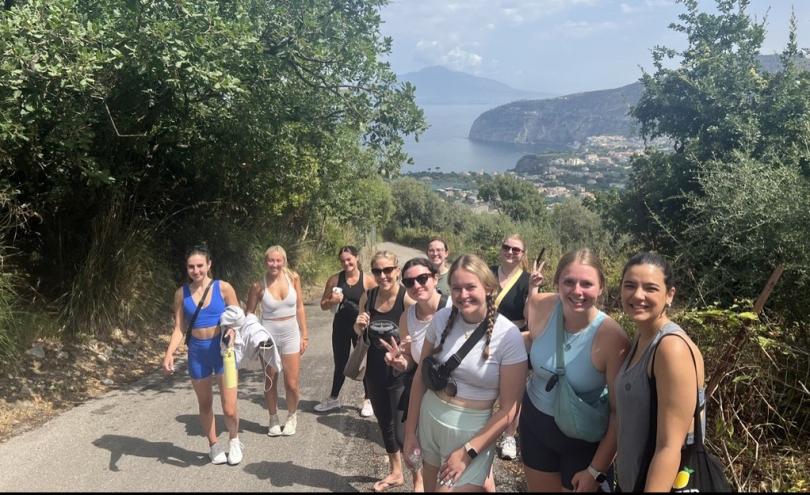
Study Abroad Meets Psychology -- An Opportunity Not to be Missed
By Madeline Wilkinson
Going to the University of Kentucky, we often see a variety of cultures around campus. Whether it’s the flags on the side of Bradley Hall, passing by the International Center, or attending the Education Abroad Fair every semester and hoping to get your name called for an all-expenses-covered trip to another country, there’s always something new to experience. Even if you don’t win, there are plenty of education abroad programs for every major— especially psychology.
The Psychology Department at the University of Kentucky has several faculty and professors who are more than willing to help psychology majors on their journeys. Dr. Shannon Sauer-Zavala, one of UK’s many influential psychology professors, shared her experience with education abroad, along with the psychology class she teaches while on the program.
Sauer-Zavala, both a clinical psychology professor and former graduate student here at the University of Kentucky, has been involved in education abroad since her junior year as an undergraduate at Gettysburg College in Pennsylvania. She had the opportunity to go to England for a month as part of her education abroad program, staying primarily in London through a faculty-led program called Victorian Childhood. Classes were held three times a week and focused on reading and lectures, while the rest of her time was spent in cultural and experiential environments, such as museums. For the rest of the fall semester, Sauer-Zavala enrolled at Lancaster University, giving her a realistic, immersive experience of what it’s like to study in another country as a college student. She explains that she was a first-generation college student, and her family didn’t travel abroad at all — except for visits to Canada. Fortunately, her college heavily promoted education abroad and made the financial aid process simple.
As for her more recent experience with education abroad, Sauer-Zavala developed and teaches an undergraduate course called PSY 120: The Science of Happiness. The two-week summer class is based more on immersive experiences than classroom learning, such as olive-oil tasting in Sorrento, Italy, or hiking in Crete, Greece. The class is also taught alongside Dr. Christal Badour, who teaches PSY 375: The Science of Stress Reduction. Sauer-Zavala and Badour recently announced the location of their next program for this coming summer: Okinawa and Tokyo, Japan.
These locations aren’t random. They’re based on an incredible phenomenon called Blue Zones, where people living in certain coastal environments have been recorded to live much longer than those in other parts of the world. The possible reason? Maintaining happiness, reducing stress and living an overall healthy lifestyle, all concepts these programs promote.
Of course, studying abroad can seem scary and intimidating at first. You’re traveling to a different country, maybe even an entirely different continent, where the culture, language and education system are unfamiliar. However, the benefits of making that choice far outweigh your worries. Sauer-Zavala explains that education abroad helps push students out of their comfort zones. That might mean literally, like doing stand-up paddleboard pilates in Greece, or mentally, by maintaining a positive mindset while hiking 10 miles up a mountain in the summer heat. She also says that these challenging activities create memories, foster bonding moments and help students learn new things about themselves; things they might not have discovered if they hadn’t joined the program.
For psychology majors specifically, getting to experience new cultures, communities and mindsets is another major benefit, as the field requires us to understand how people and the world around us work. It also helps put things into perspective and fosters empathy, an essential skill for anyone interested in clinical or counseling psychology. Additionally, education abroad benefits students as a whole by showing that there’s more than one way to approach or solve a problem.
Whether you decide to go the summer after your freshman year or the spring of your senior year, education abroad is an experience everyone should have regardless of major. Aside from learning new things in the classroom, you’ll also learn about the country, the culture and the people around you. Visiting a new place can be scary, but ultimately, it’s incredibly rewarding. So, if you’re sitting in your room, staring at the Education Abroad homepage, go ahead and take those first steps — you won’t regret it.
